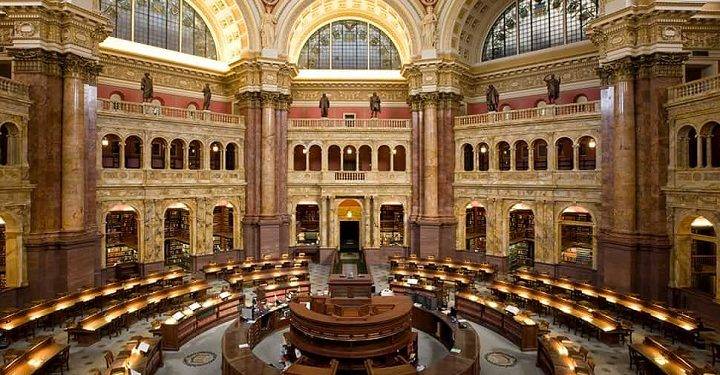In the dynamic world of copyright law and intellectual property rights, navigating the intricacies of legal frameworks can be daunting. One crucial entity that stands at the forefront of copyright registration and administration in the United States is the Library of Congress Copyright Office. Understanding the significance of the “Inauthor:”Library of Congress Copyright Office” is paramount for creators, authors, and businesses alike. In this comprehensive guide, we delve into the functions, procedures, and importance of this institution, shedding light on its role in safeguarding intellectual property rights.
Demystifying the Library of Congress Copyright Office

- What is the Library of Congress Copyright Office?
- Historical evolution and significance.
- Key responsibilities and functions.
- Overview of copyright registration process.
- Importance of copyright registration for creators and businesses.
Understanding the “Inauthor:” Functionality
- Introduction to the “Inauthor:” search operator.
- How it works within the Library of Congress Copyright Office database.
- Advantages of using “Inauthor:” for copyright research.
- Examples and case studies illustrating its utility.
- Tips for effective utilization in copyright-related inquiries.
Navigating Copyright Registration with the Library of Congress
- Detailed breakdown of the copyright registration process.
- Eligibility criteria for copyright protection.
- Types of works covered under copyright law.
- Step-by-step guide to submitting a copyright application.
- Common pitfalls to avoid during registration.
Leveraging the Library of Congress Copyright Office for Legal Protection

- Legal implications of copyright infringement.
- Enforcing copyright claims through the Library of Congress.
- Understanding the role of copyright records in legal disputes.
- Accessing copyright records for evidentiary purposes.
- Collaborating with legal professionals for copyright enforcement.
Maximizing Benefits for Authors and Creators
- Exploring additional services offered by the Library of Congress Copyright Office.
- Library of Congress Cataloging in Publication (CIP) Program.
- Preservation initiatives and archival resources.
- Research opportunities for scholars and historians.
- Promoting cultural heritage through copyright registration.
Staying Updated on Copyright Law and Policy
- Tracking legislative developments impacting copyright law.
- Engaging with public consultations and policy discussions.
- Educational resources provided by the Library of Congress Copyright Office.
- Accessing online databases and publications for copyright research.
- Joining professional associations for networking and advocacy.
Best Practices for Copyright Compliance
- Importance of understanding copyright law for businesses and content creators.
- Implementing copyright policies and procedures.
- Licensing considerations for using copyrighted materials.
- Fair use principles and exemptions under copyright law.
- Conducting regular copyright audits to mitigate risks.
Future Trends and Innovations in Copyright Administration
- Emerging technologies shaping the future of copyright management.
- Blockchain and distributed ledger technology in copyright registration.
- Artificial intelligence for content identification and rights management.
- Global harmonization efforts in copyright law.
- Predictions for the evolution of copyright administration.
The “Inauthor”Library of Congress Copyright Office” plays a pivotal role in safeguarding intellectual property rights and fostering creativity in the digital age. By understanding its functions, leveraging its resources, and staying informed about copyright law, creators, authors, and businesses can navigate the complexities of copyright administration with confidence. Whether seeking copyright protection, conducting research, or enforcing rights, the Library of Congress Copyright Office remains an invaluable ally in the realm of intellectual property. Stay empowered, stay informed, and protect your creative endeavors with the assistance of this esteemed institution.











